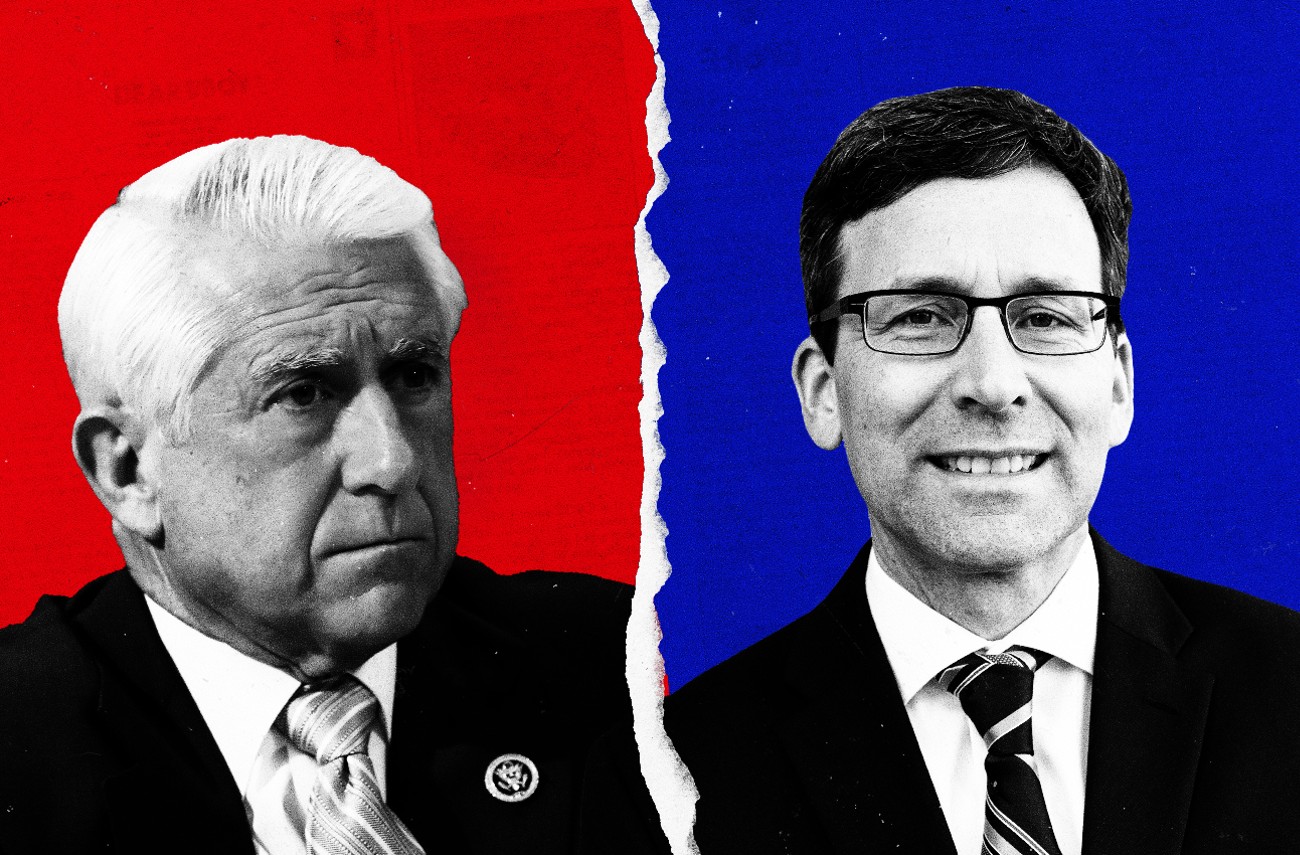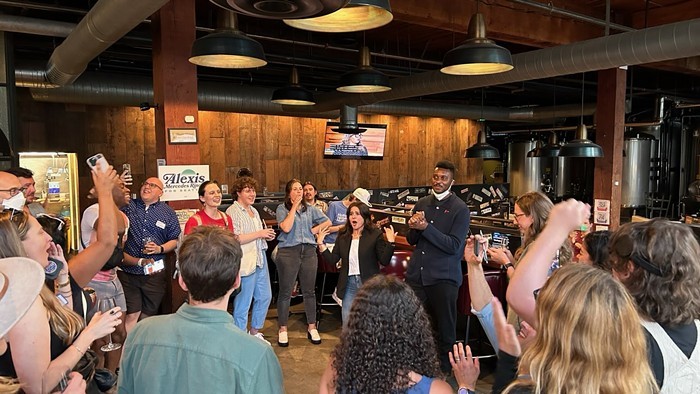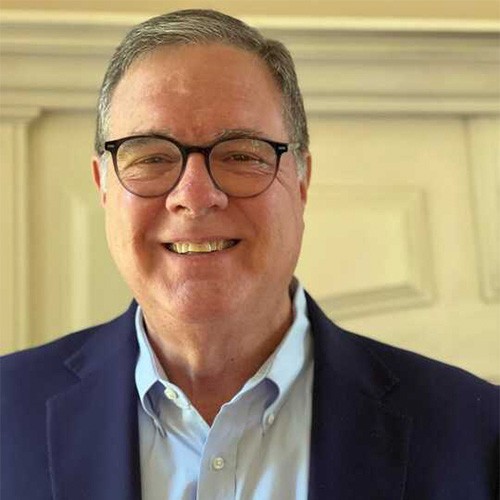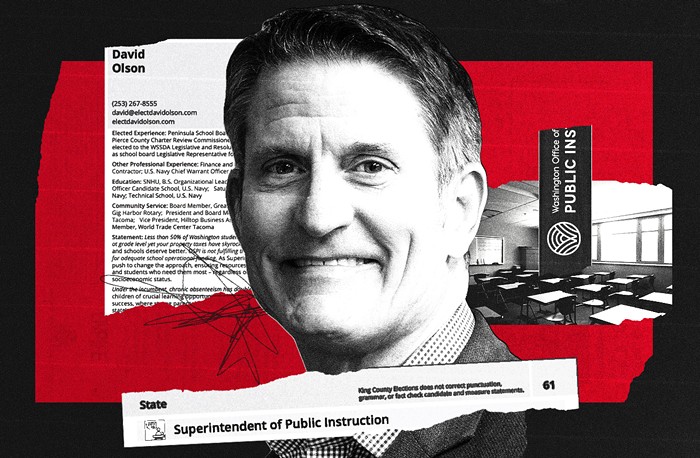In what appeared to be some community college’s second-best auditorium, KING 5 held a Washington State Gubernatorial debate Tuesday night between Democratic Washington Attorney General Bob Ferguson and former Republican US Representative Dave Reichert. Neither candidate performed particularly well or particularly badly, but, at the end of the day, voters must choose one of these two charmless politicians to take charge of more than 8 million people and a $70 billion budget, so let’s look at what they said.
The “big” news. Just so people understand how mind-numbingly empty this debate ended up being, Reichert blurted out the biggest news of the night within the first 15 minutes or so when he revealed that he wouldn’t vote for either Vice President Kamala Harris or former President Donald Trump in the upcoming 2024 presidential election. His campaign said Reichert hasn’t yet revealed who he plans to vote for instead. (Somebody alert Jill Stein and the 10 guys on my IG stories constantly posting about her—they might have a new friend.) Reichert used his personal uncommitted campaign to parry Ferguson’s attempts to paint him as a MAGA Republican, but he never explained why he changed his mind from earlier this year, when he professed to a room full of Republican activists his intentions to vote for Trump. During that meeting, he even bragged about Trump christening him with a nickname: “the Sheriff.” Cute. Plus, Reichert said Trump’s full name three times while calling Ferguson obsessed with Trump, sounding a bit like me trying to deny my crush.
Tie goes to Ferguson. Unlike my crush, I doubt either Ferguson or Reichert charmed many viewers. Reichert came across like a jock with time blindness; he kept ending his answers with “I’m finished” or “I’m running out of time.” For his part, Ferguson got nerd-mad a couple times, especially at the beginning of the debate, when he accused the moderators of failing to enforce the rules against Reichert interrupting him. KING 5’s Joyce Taylor had to ask Ferguson not to interrupt her. But neither candidate really “needed to be likable” to achieve their aims. Ferguson just needed to paint Reichert as a hater of abortion and a lover of Trump, and Reichert just needed to call Ferguson a lying liberal who would let crime run wild across Washington. Ferguson managed to neutralize some of Reichert’s attacks about crime by tying him to Trump and by promoting policies to hire more police, but, in his inability to answer a few questions directly, he still came across as a weaselly Democrat. Meanwhile, Reichert tried to cloak himself in never-Trump rhetoric, but Ferguson convincingly painted him as anti-abortion pro-Trumper. Since the debate failed to provide much new information about either candidate’s policies, the whole thing came out as a wash.
Right on crime. Both candidates tried to cement themselves in the minds of viewers as rock-hard on crime. Ferguson bolstered his crime-fighting credentials by trotting out his plan to create a $100 million grant program to help local governments hire more cops. On the other side, Reichert promised to lock up 13-year-old kids who scare Washington’s teachers, prevent terrorists coming across “the border,” and lock up those drug users who drive up inflation by stealing groceries one armful at a time. Still, Reichert used up valuable time burnishing his tough-on-crime reputation and failed to land any real soft-on-crime attacks against Ferguson. With his promise of more cops, Ferguson may have managed to stop the bleeding when it comes to voters leaving him for Daddy Reichert and his shiny sheriff’s badge.
Reichert fails on abortion. On the other hand, Ferguson landed blow after blow against Reichert when it came to abortion. At a town hall in April, Reichert said his victory would allow Republicans to “unravel” affordable abortion services. Ferguson also attacked Reichert on his votes in Congress for the Pain-Capable Unborn Child Protection Act. Reichert tried to paint that bill as functionally no different than Washington’s own abortion regulations, which prevent abortions once a fetus becomes viable outside the womb, but he stretched the truth a bit there. The bill set viability at 20 weeks and imposed criminal penalties for anyone performing an abortion after that time limit, unlike Washington’s law, which requires a medical professional to determine viability, which doctors usually consider to be around 24 weeks. Reichert defended himself further by swearing he would protect Washington’s statewide abortion rights, and pointing to a moment in the 1970s, when he said he protected women seeking abortion from protests outside abortion clinics. Ultimately, Reichert failed to convincingly walk back a long history of anti-choice votes and recent rhetoric.
Ferguson fails on delivering answers to questions in general. When asked if he believed that elected officials had misled voters on how much the Climate Commitment Act would increase gas prices, Ferguson didn’t really answer the question directly. He said it was “time to move forward,” promised to make sure farmers received an exemption from caps on emissions and certain fees, and vowed to hold gas corporations accountable by forcing more transparency in their pricing mechanisms. He also failed to give specific proposals for combatting a looming budget deficit, and instead congratulated himself for managing budgets really well as a King County Council Member. He also weirdly side-stepped a question about how he’d make sure both Eastern and Western Washington had access to quality transportation routes. When asked about which transportation projects he’d support, he said he’d visited all 39-counties and had lots of conversations about roads, and he’d find bipartisan solutions to fix failing bridges. Ferguson’s answers seemed reminiscent of his conversations with us during his endorsement meeting, where he dodged most questions.
A friend to farmers. Ferguson did shine on one question, though! After Reichert said he planned to bring people together to find a “final solution” for farm workers, Ferguson gave a satisfyingly direct answer on support for farmworker protections. He pointed to the millions of dollars he won for farm workers after employers mistreated them and then talked about how his own kids participate in summer programs to help out farmers with their kids to learn about the people “who do some of the most difficult work that few people want to do.” He still refused to lay out how he planned to be a friend to farmers, but he at least managed not to vaguely promise bipartisan solutions.
The most important thing to note. Fundamentally, the takeaway from this debate is that Ferguson has traveled to every one of Washington’s 39 counties, as he mentioned repeatedly. He also stressed that he plans to visit all 39 counties again. Much like this debate, it’s unclear if those trips will increase his chances of becoming governor. But if you see him at a town hall on the campaign trail, then put your hands down and shut your dirty mouths, because this man’s not answering any questions directly. He’ll tell you what he plans to do as governor once you’ve earned the right to know.




















